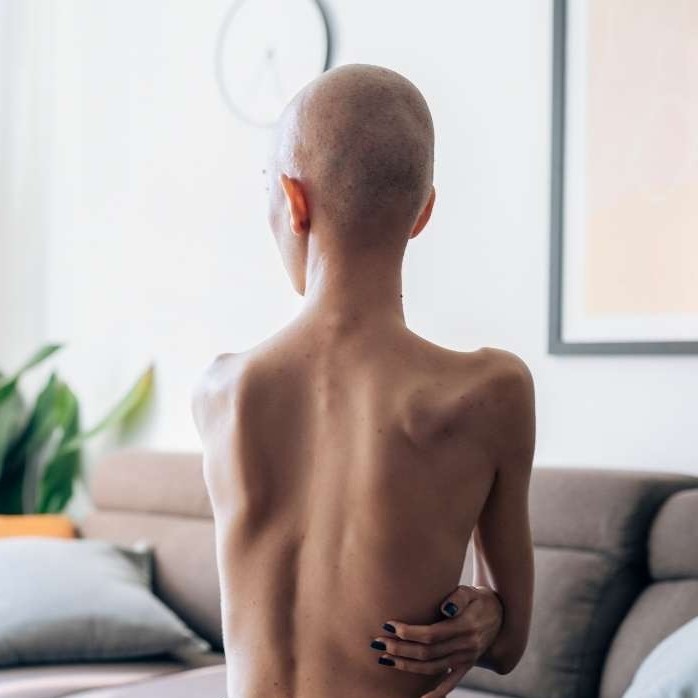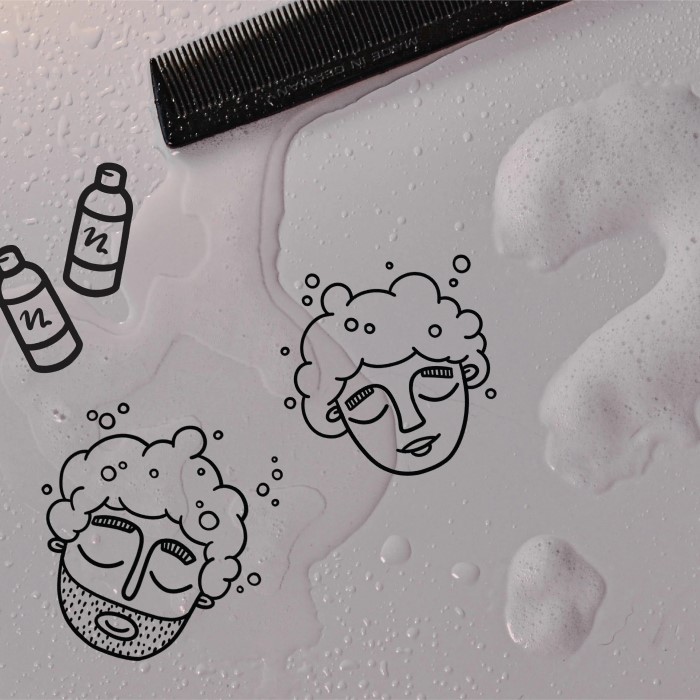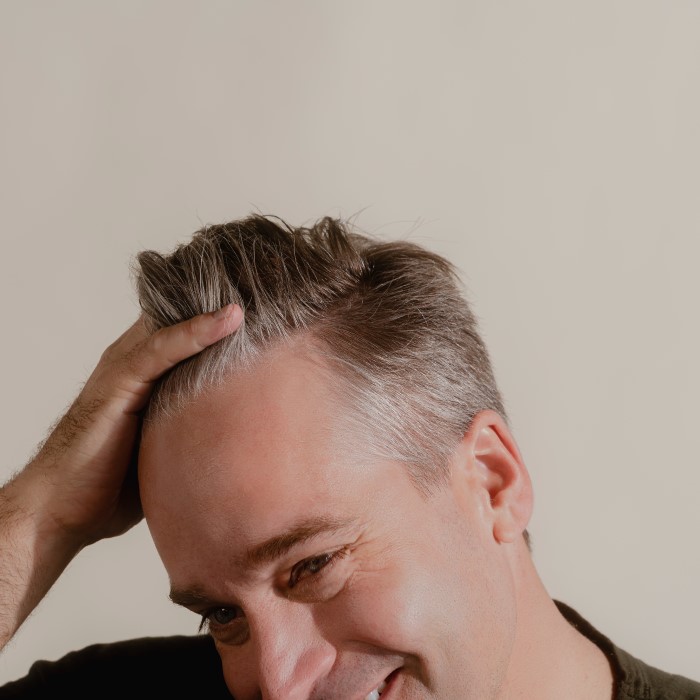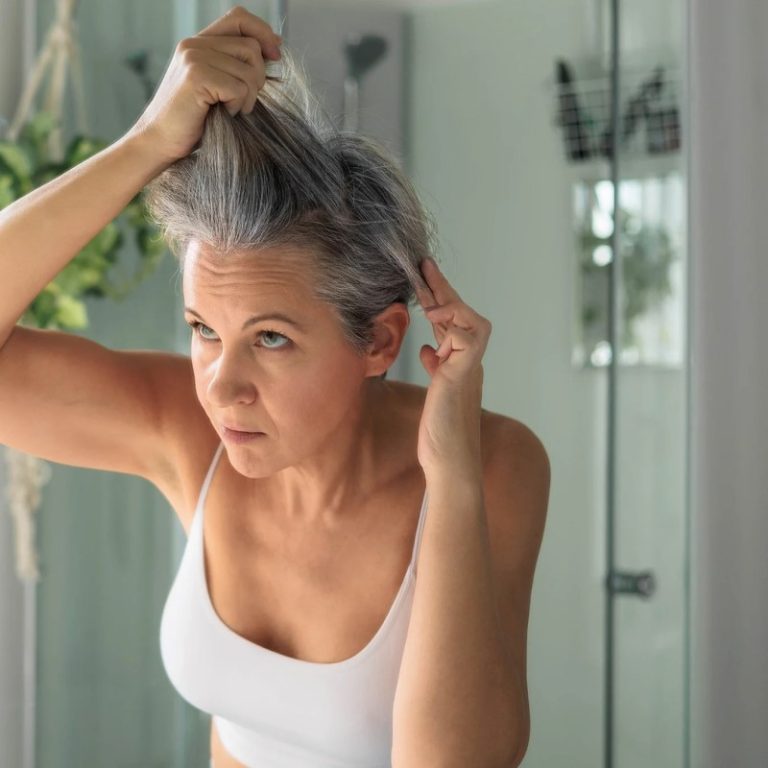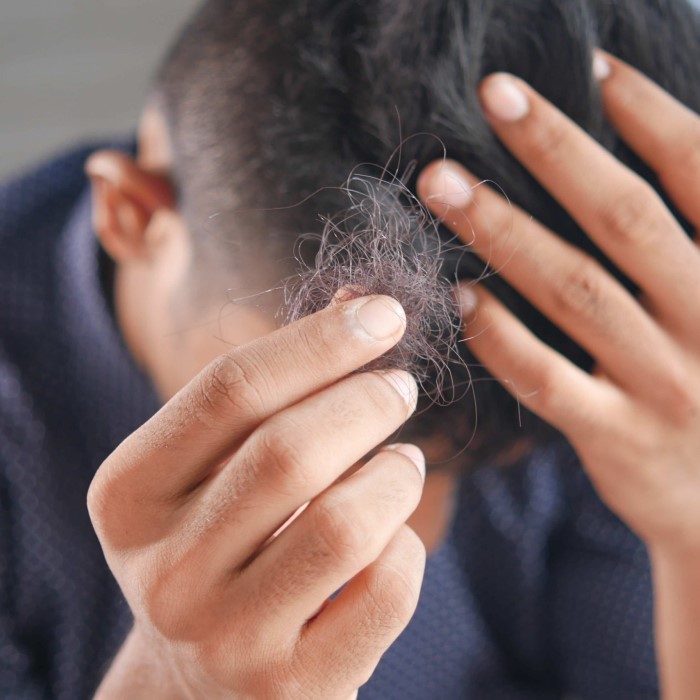
Does Masturbation Cause Hair Loss? Facts You Need to Know!
Introduction: Understanding the Concern
The question “does masturbation cause hair loss?” has been a topic of intrigue and concern for many. With the rise of health dialogues in various online forums, this issue has garnered attention and sparked debates. Individuals often worry about the possibility that a natural act could lead to physical consequences, such as hair loss. Misinformation and myths can cloud discussions, leaving many feeling anxious and confused about their health.
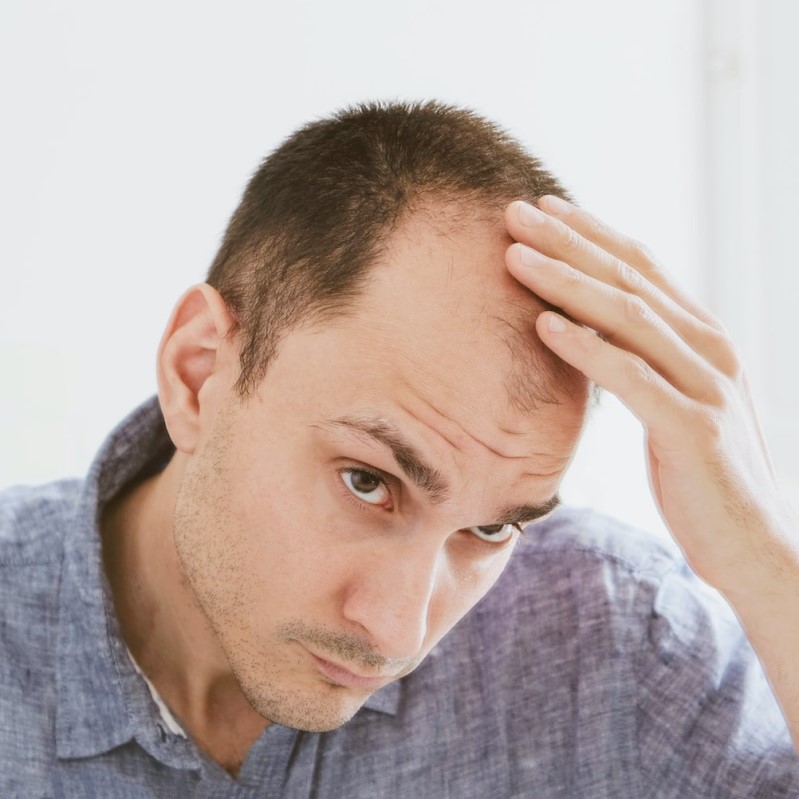
Masturbation is a common behavior that is perfectly natural for both men and women. It is an aspect of sexual health that many embrace. However, when individuals experience hair loss, they frequently seek connections and answers to their concerns and may look for causative factors in everyday behaviors. This article aims to dissect the relationship between masturbation and hair loss, emphasizing scientific findings while dispelling common myths surrounding this issue.
The Science Behind Hair Loss
To adequately address the question of whether masturbation causes hair loss, it’s essential to explore the scientific background of hair thinning and loss. Understanding the mechanisms of hair growth can illuminate why masturbation does not significantly contribute to this common concern.
- Genetics as a Primary Factor: One of the leading causes of hair loss, especially in men, is genetics. Conditions like androgenetic alopecia (male pattern baldness) are hereditary. If family members experienced hair loss, there is a genetic predisposition to hair thinning as one ages. This hereditary factor plays a far more significant role than lifestyle choices, including masturbation.
- Hormonal Influences: Hormones significantly govern hair health. In particular, androgens, a group of hormones that includes testosterone, can affect hair follicles. Dihydrotestosterone (DHT), a derivative of testosterone, is linked to hair loss. Higher levels of DHT can lead to shrinking hair follicles, causing hair to thin and fall out. It’s essential to differentiate between normal hormonal fluctuations and those that become problematic for hair growth.
- Health Conditions Impacting Hair Growth: Medical conditions such as thyroid disorders, iron deficiencies, and autoimmune diseases can significantly affect hair health. For instance, alopecia areata is an autoimmune condition that causes hair to fall out in patches. Identifying underlying health issues is crucial for anyone experiencing unexplained hair loss.
Debunking Common Myths About Masturbation and Hair Loss
Does masturbation cause hair loss? With the rise of various myths associated with masturbation, individuals may draw connections that do not exist. Many people believe that the act of masturbation somehow leads to hair loss. However, these beliefs are largely unfounded and built upon anecdotal evidence rather than science.
- No Direct Evidence: Extensive research centers on hair loss does not support an assertion that masturbation leads to hair loss. Studies indicate that any hormonal fluctuations caused by masturbation are temporary and do not affect overall hormone levels in a way that would impact hair growth or loss significantly.
- Cultural Influences and Stigmas: Societal norms and cultural beliefs can exacerbate fears about masturbation and health implications. Many myths stem from underlying taboos surrounding sexual expression. Understanding that these stigmas do not align with scientific findings can ease anxiety regarding personal health choices.
- Psychological Factors: It is worth noting that psychological stress can lead to temporary hair loss. Feelings of guilt or shame associated with masturbation may lead to anxiety, which can affect overall well-being. Stress-induced hair loss, known as telogen effluvium, explicitly links psychological health with physical health, reinforcing the importance of mental wellness.
Hormones and Their Role in Hair Health
Does masturbation cause hair loss? Understanding the hormonal landscape is critical when exploring the effects of masturbation on health, particularly in relation to hair loss.
- Understanding Testosterone: Testosterone is a crucial hormone that influences many bodily functions, including hair growth. While masturbation can cause slight temporary increases in testosterone, these levels normalize quickly and have no lasting impact on hair follicles. Thus, the notion that masturbation negatively affects testosterone levels and, consequently, hair growth is misguided.
- DHT and Hair Follicles: DHT is a significant factor in male pattern baldness. It is synthesized from testosterone primarily in the scalp and may bind to the hair follicles, causing them to shrink over time. Yet, the production of DHT is influenced by individual genetic predisposition rather than sexual habits.
- Low Testosterone and Hair Loss: Conversely, low testosterone levels can lead to hair thinning. In cases of hormone imbalance, one might experience hair loss alongside additional symptoms. Individuals facing hormonal challenges should consult their healthcare provider to explore treatment options that may address multiple aspects of their health.
FAQs About Masturbation and Hair Loss
Understanding specific questions that many people have can provide additional clarity and insight. Here are some pertinent FAQs related to this topic:
Can sperm regrow hair?
Sperm has no properties that can regenerate hair growth. While it contains nutrients, those associated benefits do not translate to hair health. Hair growth is complex and relies on follicular health informed by hormones, genetics, and diet.
Does sperm count affect hair growth?
There is no direct correlation between sperm count and hair growth. While both factors are influenced by hormonal health, fluctuations in sperm count do not necessarily result in changes to hair density or growth.
Does low testosterone cause hair loss?
Yes, low testosterone is indeed associated with hair thinning and loss. When testosterone levels drop, there can be an imbalance in hormones that affects follicles, contributing to thinning hair. Identifying such hormonal changes is important for adequate treatment.
Holistic Approaches to Hair Health
Does masturbation cause hair loss? For those concerned about hair loss, understanding that multiple factors contribute to hair health is essential. Taking a comprehensive and holistic approach can bolster hair wellness while reducing anxiety over unfounded causes such as masturbation.
Balanced Nutrition
- Importance of a Balanced Diet: A well-rounded diet is fundamental for maintaining healthy hair. The body requires a variety of nutrients to support hair growth and strength.
- Essential Nutrients for Hair:
- Vitamins: Nutrients such as vitamins A, C, D, and E are crucial.
- Vitamin A promotes the production of sebum, which keeps hair moisturized.
- Vitamin C aids in the absorption of iron and helps create collagen, a key component for hair structure.
- Vitamin D has been linked to hair follicle cycling, playing a role in hair growth.
- Vitamin E protects hair from oxidative stress and helps improve blood circulation to the scalp.
- B Vitamins: These are vital for energy production and can help promote healthy hair growth. Biotin, in particular, is often highlighted for its role in maintaining hair strength.
- Minerals: Essential minerals like iron and zinc are necessary for hair health.
- Iron helps red blood cells carry oxygen to the hair follicles, which is necessary for growth.
- Zinc supports hair tissue growth and repair, preventing hair loss.
- Omega-3 Fatty Acids: These healthy fats contribute to scalp health by providing essential oils and nutrients.
- Vitamins: Nutrients such as vitamins A, C, D, and E are crucial.
- Sources of Nutrients: Include a variety of foods in your diet to ensure you provide these essential nutrients.
- Leafy Greens: Spinach and kale are packed with vitamins and minerals vital for hair health.
- Nuts: Almonds and walnuts provide healthy fats and vitamin E.
- Fish: Fatty fish like salmon and mackerel are rich in omega-3 fatty acids.
- Lean Meats: Sources like chicken and turkey provide proteins and iron necessary for hair growth.
Stress Management Techniques
- Importance of Stress Management: High levels of stress can lead to hair loss. Managing stress effectively is crucial for maintaining hair health.
- Mindfulness Practices:
- Techniques like mindfulness help individuals remain present, reducing anxiety and stress levels.
- Practicing mindfulness can improve overall mental health, which is beneficial for hair vitality.
- Meditation:
- Regular meditation can help calm the mind and reduce stress.
- Even short daily sessions can alleviate tension and create a sense of peace.
- Yoga:
- Incorporating yoga into your routine can promote relaxation and improve blood circulation.
- Certain yoga postures may specifically target stress relief, benefiting overall well-being.
- Regular Physical Activity:
- Engaging in regular exercise is essential for overall mental health.
- Physical activity releases endorphins, which is a natural way to alleviate stress and uplift mood.
Regular Health Screenings
- Importance of Health Check-ups: Regular health screenings can identify underlying conditions that might lead to hair loss.
- Proactive Approach:
- Maintaining open communication with healthcare professionals about health changes is vital.
- Discuss any noticeable changes in hair health, as well as other health habits or symptoms.
- Monitoring Conditions:
- Regular check-ups can help diagnose conditions like thyroid disorders, nutritional deficiencies, or hormonal imbalances.
- Early detection of such issues can lead to timely treatment and prevent further hair loss.
Gentle Hair Care Practices
- Protecting Hair from Damage: Implementing protective measures can significantly enhance hair health.
- Avoid Harsh Treatments:
- Steer clear of aggressive chemical treatments such as perms or relaxers that can weaken hair.
- Limit coloring treatments, as repeated exposure to dyes can lead to hair breakage.
- Limit Heat Styling Tools:
- Excessive use of hair dryers, curling irons, and straighteners can compromise hair strength.
- When heat styling is necessary, use a heat protectant spray to minimize damage.
- Use Gentle Hair Products:
- Opt for mild shampoos and conditioners free from harsh chemicals and sulfates.
- Natural ingredients are often gentler on the hair, promoting overall health.
- Regular Conditioning:
- Incorporate conditioning treatments to help maintain moisture levels in your hair.
- Deep conditioning masks, applied weekly, can improve hair texture and strength over time.
Conclusion: Addressing the Myths
In summary, the concern surrounding “does masturbation cause hair loss?” is rooted in societal stigma and misinformation rather than scientific evidence. Research consistently demonstrates that there is no causal relationship between masturbation and hair loss. Instead, genetic predisposition, hormonal health, and lifestyle choices play the most significant roles in determining hair health.
Fostering a clear understanding of these issues can eliminate unnecessary anxiety and help individuals focus on addressing the real factors affecting their hair. Embracing healthy lifestyle choices, managing stress, and consulting healthcare professionals can empower individuals to take control of their well-being.
Ultimately, the exploration of this topic encourages individuals to engage with credible information and approach health with an informed and balanced perspective. There is no need to attribute hair loss to natural behaviors such as masturbation when other factors are supported by scientific inquiry. By prioritizing holistic health, everyone can embark on a journey toward greater physical and mental wellness.
